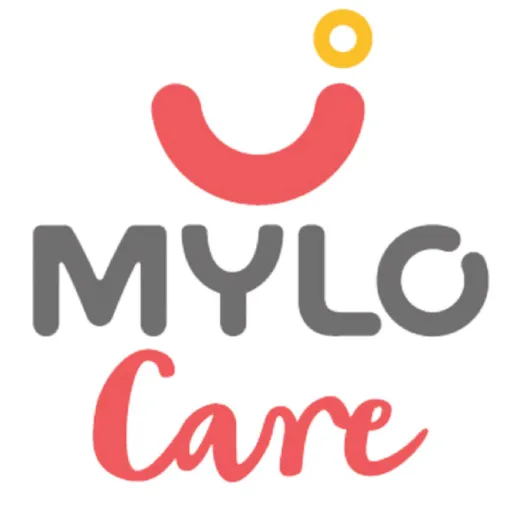Home

Breastfeeding & Lactation

Disadvantages of Breastfeeding No One Tells You About
In this Article

Breastfeeding & Lactation
Disadvantages of Breastfeeding No One Tells You About
Updated on 4 February 2026
Breastfeeding is a natural and recommended way to feed a baby, but it is not always easy. Alongside expert guidance and a balanced diet, some mothers also choose trusted nutritional support options like Mylo Lactomama Lactation Granules to complement their breastfeeding routine. In this article, we will discuss the disadvantages of breastfeeding that no one tells you about.
Introduction to breastfeeding
Breastfeeding is the process of feeding a baby with breast milk directly from the mother's breast. It is recommended by the World Health Organization (WHO) as the best way to feed a baby in the first six months of life. Breast milk provides all the nutrients and antibodies a baby needs to grow and develop. It is also easy to digest, and it reduces the risk of infections, allergies, and diseases.
What are the advantages of breastfeeding?
Breastfeeding has a lot of benefits for both the mother and the child. It helps to build a strong bond between them and promotes emotional closeness. Breastfeeding also reduces the risk of breast and ovarian cancer, and it helps the mother to lose weight faster after giving birth. For the baby, breast milk provides protection against infections, allergies, and diseases. It also promotes brain development and reduces the risk of sudden infant death syndrome (SIDS).
What are the disadvantages of breastfeeding?
Breastfeeding is not always easy, and it can come with its set of challenges and disadvantages. Some of the most common disadvantages of breastfeeding include physical and emotional challenges. It can also be difficult to breastfeed after one or two years, and it is not always possible to breastfeed at all.
1. Back pain
Breastfeeding can cause back pain due to poor posture and muscle fatigue caused by holding the baby for prolonged periods. The extra weight of the breasts can also put a strain on the upper spine.
2. Cramps
Breastfeeding can also cause cramping. This is due to the release of the hormone oxytocin, which causes menstrual-like cramps in new mothers while breastfeeding soon after giving birth.
3. Sore nipples
Breastfeeding initially or with the wrong latch can cause sore nipples, which can be painful and make it difficult to breastfeed.
4. Engorgement
Engorgement is when the breasts become swollen and painful due to an increase in milk production. This can make breastfeeding difficult and painful.
5. Mastitis
Mastitis is an infection of the breast tissue that can cause flu-like symptoms, fever, and pain. Such a breast infection can hamper the breastfeeding experience for both mom and baby.
6. Anxiety
It can be difficult to breastfeed in public or in front of other people, which can cause embarrassment and anxiety.
7. Guilt
The pressure to breastfeed can also cause stress and feelings of guilt if the mother is unable to breastfeed or decides not to.
8. Dietary restrictions
Among the disadvantages of breastfeeding is the dietary restrictions it brings. Mothers may need to modify their diet and avoid certain foods while breastfeeding.
9. Limited freedom
A limited personal freedom as the mother must be available for feedings every few hours. It can also be time-consuming and require a lot of energy.
10. Menstrual break
Breastfeeding may prevent the mother from returning to her menstrual cycle for several months, which some women may find inconvenient.
11. Osteoporosis
Breastfeeding does not typically lead to osteoporosis, but in rare cases, women who are pregnant or breastfeeding can develop a severe form of osteoporosis. This is because women tend to lose bone mass during breastfeeding.
Disadvantages of breastfeeding after 1 year
Breastfeeding after one year can be challenging for both the mother and the child. The child may become more demanding and fussy, and it can be difficult to wean them off breast milk. Breastfeeding after one year can also cause physical discomfort for the mother, such as back pain and fatigue.
Disadvantages of breastfeeding after 2 years
Breastfeeding after two years can also come with its set of challenges and disadvantages. The child may become more attached to the breast and may have a harder time weaning off breast milk. Breastfeeding after two years can also cause social challenges, such as criticism and judgement from others.
How to overcome the disadvantages of breastfeeding?
Breastfeeding has both advantages and disadvantages. Here are five ways to overcome the challenges of breastfeeding:
1. Seek Support
Seek support from a lactation consultant, healthcare provider, or support groups for breastfeeding mothers. They can provide guidance, support, and answer any questions that you may have.
2. Practice Proper Breastfeeding Techniques
Learn proper breastfeeding techniques to ensure that your baby is latching correctly and that you are comfortable during feeding.
3. Take Care of Yourself
Ensure that you are taking care of yourself by eating a healthy diet, staying hydrated, getting enough rest, and managing stress. This can make breastfeeding less painful and stressful.
4. Use Breastfeeding Accessories
Consider using breastfeeding accessories such as breast pumps, nipple shields, and nursing bras to make breastfeeding more comfortable and convenient.
5. Involve Your Partner
Involve your partner in other ways, such as diaper changing, bathing, and playing with the baby. This can help your partner feel involved and allow you to take a break from breastfeeding.
Alternatives to breastfeeding
If breastfeeding is not possible or if the mother decides not to breastfeed, there are alternatives available. Formula feeding is a safe and nutritious way to feed a baby, and it can provide all the nutrients a baby needs to grow and develop. There are also alternative feeding methods, such as donor milk, which is breast milk from another mother.
Conclusion
Breastfeeding has a lot of benefits for both the mother and the child, but it is not always easy. It comes with its set of challenges and disadvantages of breastfeeding that not everyone talks about. It is important to weigh the advantages and disadvantages of breastfeeding and make an informed decision that is best for the mother and the child.
References
1. Kalarikkal SM, Pfleghaar JL. Breastfeeding. (2023). In: StatPearls [Internet]. Treasure Island (FL): StatPearls Publishing
2. Krol KM, Grossmann T. (2018). Psychological effects of breastfeeding on children and mothers. Bundesgesundheitsblatt Gesundheitsforschung Gesundheitsschutz.



Written by
Mylo Care
Happiness starts with you!
Read MoreGet baby's diet chart, and growth tips

Related Articles
Related Topics
RECENTLY PUBLISHED ARTICLES
our most recent articles

Breast Milk
No Breast Milk After Delivery: What to Do & What are the Factors Responsible

Diet & Nutrition for Mothers
Indian Food to Increase Breast Milk: Everything You Need to Know

Medications
Dolo 650 During Breastfeeding: Expert Advice and Guidelines for Nursing Mothers

Cold & Cough
Home Remedies for Cold During Breastfeeding: How to Keep Both Mom and Baby Healthy

Fever During Breastfeeding: Tips from Experts for New Moms

Side Effects of Breastfeeding While Lying Down: Is It Worth the Risk?
- 17 Foods to Avoid While Breastfeeding: Expert Guide for New Moms
- What to Pack and What to Skip When Travelling with a Baby
- How Baby Sleep Patterns Change in the First Year and What Parents Can Do
- Choosing the Best Baby Diapers in India for a Rash-Free, Happy Baby
- What Kind of Diapers for Babies Keep The Little One's Comfortable, Dry and Happy
- Indian Food Chart for Your 10-Month-Old Baby – Week 1
- 10 Month Old Baby Food Chart/Meal Plan – Week 2
- 10 Month Old Baby Food Chart/Meal Plan – Week 3
- Indian Food Chart for Your 8-Month-Old Baby – Week 1
- Best Christian Baby Boy Names That Are Unique and Timeless 2026
- The Ultimate Collection of Girl Baby Names in Tamil 2026
- Yellow Discharge Before Period: Is It Normal or a Cause for Concern?
- Evaporation Line vs Faint Positive: The Ultimate Guide to Pregnancy Test Results
- How to Check Pregnancy at Home with Fingers?


AWARDS AND RECOGNITION

Mylo wins Forbes D2C Disruptor award

Mylo wins The Economic Times Promising Brands 2022
AS SEEN IN
















- Mylo Care: Effective and science-backed personal care and wellness solutions for a joyful you.
- Mylo Baby: Science-backed, gentle and effective personal care & hygiene range for your little one.
- Mylo Community: Trusted and empathetic community of 10mn+ parents and experts.
Product Categories
baby carrier | baby soap | baby wipes | stretch marks cream | baby cream | baby shampoo | baby massage oil | baby hair oil | stretch marks oil | baby body wash | baby powder | baby lotion | diaper rash cream | newborn diapers | teether | baby kajal | baby diapers | cloth diapers |




